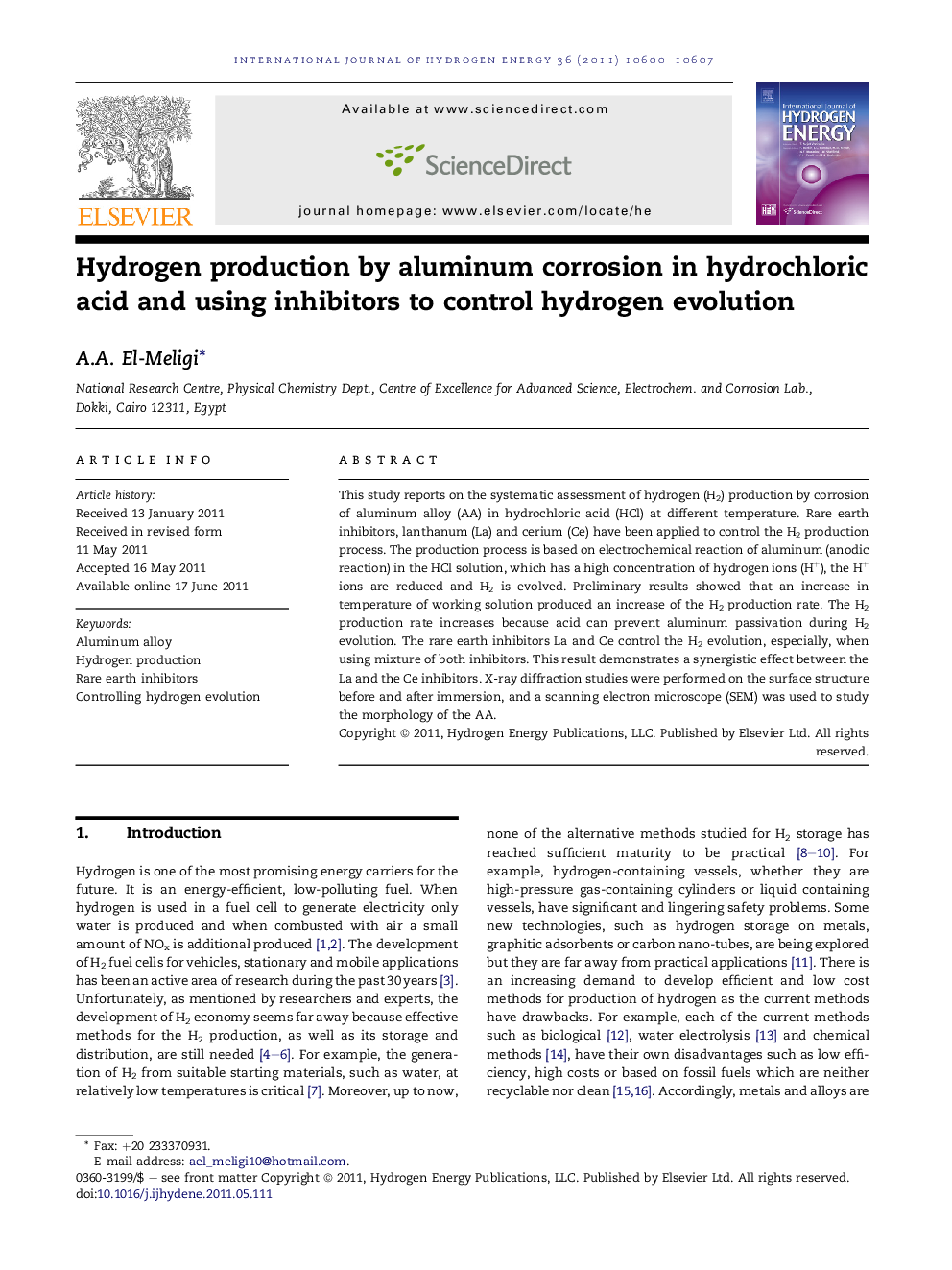| Article ID | Journal | Published Year | Pages | File Type |
|---|---|---|---|---|
| 1277527 | International Journal of Hydrogen Energy | 2011 | 8 Pages |
This study reports on the systematic assessment of hydrogen (H2) production by corrosion of aluminum alloy (AA) in hydrochloric acid (HCl) at different temperature. Rare earth inhibitors, lanthanum (La) and cerium (Ce) have been applied to control the H2 production process. The production process is based on electrochemical reaction of aluminum (anodic reaction) in the HCl solution, which has a high concentration of hydrogen ions (H+), the H+ ions are reduced and H2 is evolved. Preliminary results showed that an increase in temperature of working solution produced an increase of the H2 production rate. The H2 production rate increases because acid can prevent aluminum passivation during H2 evolution. The rare earth inhibitors La and Ce control the H2 evolution, especially, when using mixture of both inhibitors. This result demonstrates a synergistic effect between the La and the Ce inhibitors. X-ray diffraction studies were performed on the surface structure before and after immersion, and a scanning electron microscope (SEM) was used to study the morphology of the AA.
► Hydrogen was produced by corrosion of aluminum alloy (AA) in hydrochloric acid (HCl) at different temperature. ► Hydrogen production could be controlled by specific concentrations of rare earth inhibitor (La). ► Ce is a non-effective inhibitor to control hydrogen evolution. ► Hydrogen evolution controlled by a mixture of La and Ce at RT, this means that a synergistic effect exists between La and Ce. ► The hydrogen evolution was increased both in presence and in absence the inhibitors.
